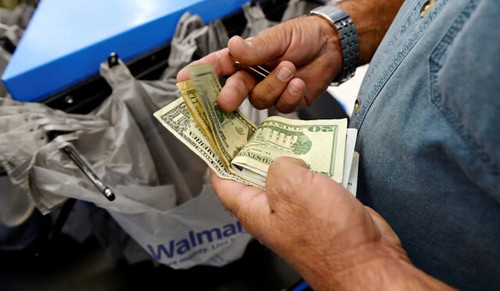
PREV ARTICLE
NEXT ARTICLE
FULL ISSUE
PREV FULL ISSUE
IN DEFENSE OF CASHLast week we discussed the disappearance of automated teller machines as cash usage declines. This piece from National Review examines what we all lose when cash goes away. -Editor There are dozens of touches that make the bar a time capsule from the 1960s. (It opened in 1968.) The jukebox plays real records, none of which are more current than 1975. The place isn't littered with TVs, so people actually speak to each other. The U.S. Dollar's Global Reserve Status: No Sign of Slipping Sri Lanka Collapses under the Weight of Modern Monetary Theory The IMF and Sri Lanka Are Partners in Delusion But most importantly, you have to use cash. No credit, no debit, no checks, no tapping your phone on a screen. In this sense, the bar might as well be operating in the 18th century. Today, people rarely carry cash, and if they do, it is typically in case something goes drastically wrong. But with the loss of cash also comes the loss of anonymity. When you pay with a card or a phone, there is always an electronic trail of both your purchases and your whereabouts. You are forever on the grid, subjecting yourself to the monitoring of nosy, prying busybodies. There is nothing more American than the dollar bill and the independence it offers. Some municipalities, like Evanston, Ill., are considering ordinances to block businesses from going completely cash-free. The businesses say that going cashless protects their employees from being held up and that customers prefer other payment methods. But poor people are also less likely to have credit cards, bank accounts, and smartphones with which to make purchases. Eliminating cash transactions effectively bars them from an establishment. (And how are you supposed to give money to homeless people on the street when there is no longer any cash? If you wave your phone over a hobo, not only does it not give the fellow a dollar, it provokes the hobo's ire.) This writer says "look for future adult dancers to don QR-code tattoos." Actually, street vendors and beggars in many third-world countries already accept online payments. I don't know about adult dancers, but QR code tats have been a thing for a while already. While the piece is humorous in tone, it rails against the loss of anonymity, subtitled "The day paper currency disappears, so will our autonomy". -Editor
But while QR code tattoos are functional for some people, some others want to get them just to be in on the joke.
To read the complete articles, see:
To read the earlier E-Sylum article, see:
Wayne Homren, Editor The Numismatic Bibliomania Society is a non-profit organization promoting numismatic literature. See our web site at coinbooks.org. To submit items for publication in The E-Sylum, write to the Editor at this address: whomren@gmail.com To subscribe go to: https://my.binhost.com/lists/listinfo/esylum All Rights Reserved. NBS Home Page Contact the NBS webmaster 
|

